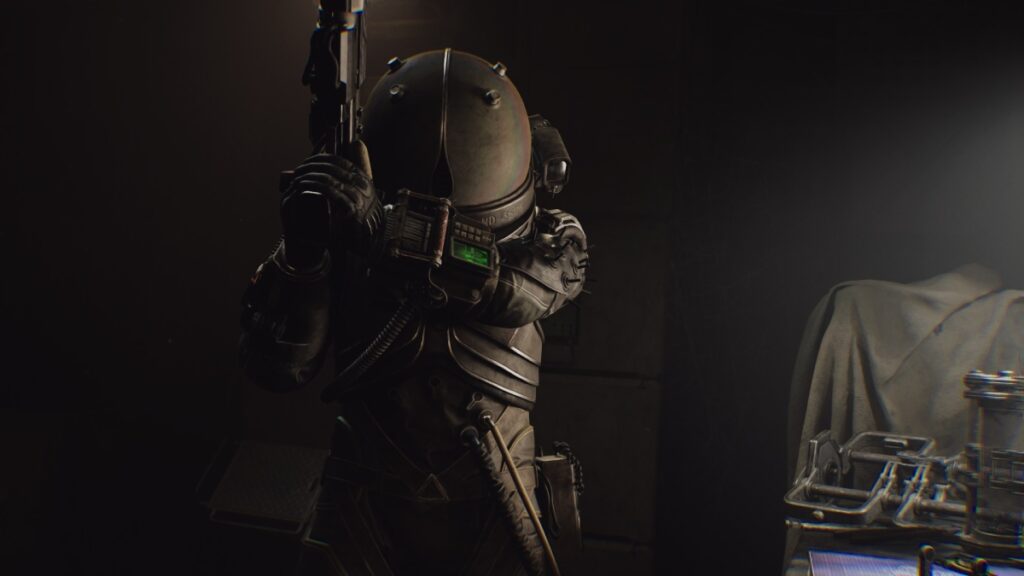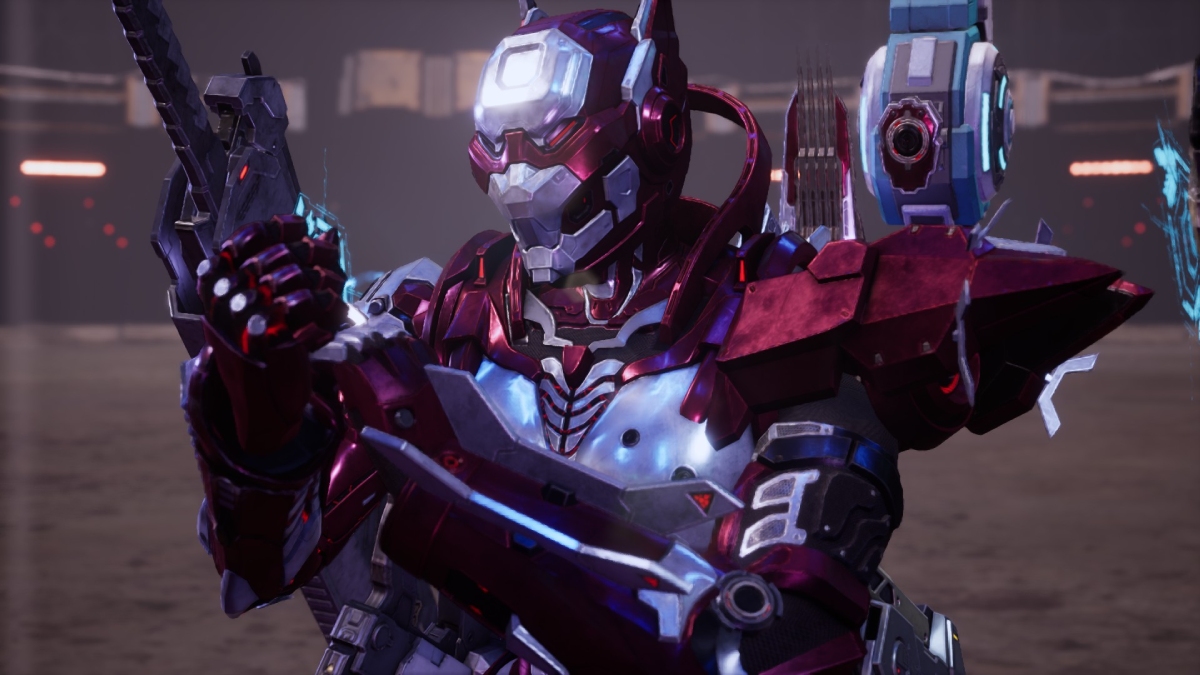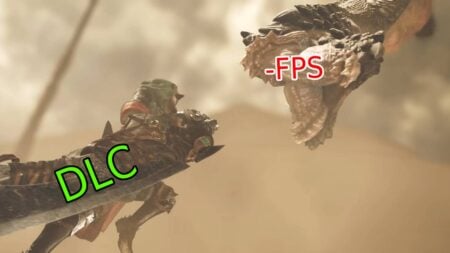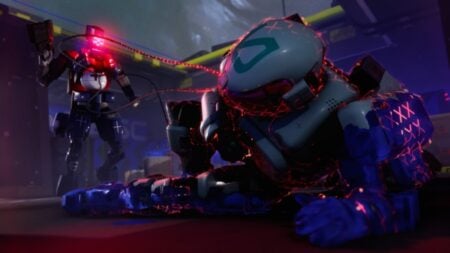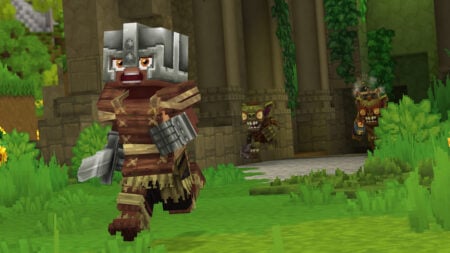Skip To...
Survival horror. Two words that have become such a solid amalgam lately that seeing them apart from each other is almost impossible. However, as someone who plays this genre quite often, I’ve noticed that the two concepts usually clash with each other. Whenever a new “survival horror” game launches, it tends to compromise one aspect in favor of enhancing the other. While the experience is enjoyable overall, it doesn’t provide that feeling of actually being in a terrifying situation with nothing but your wits to help you. Fortunately, Cronos: The New Dawn knows how to bridge both terms to deliver the challenging and harrowing experience we were waiting for.
Enter the Traveler
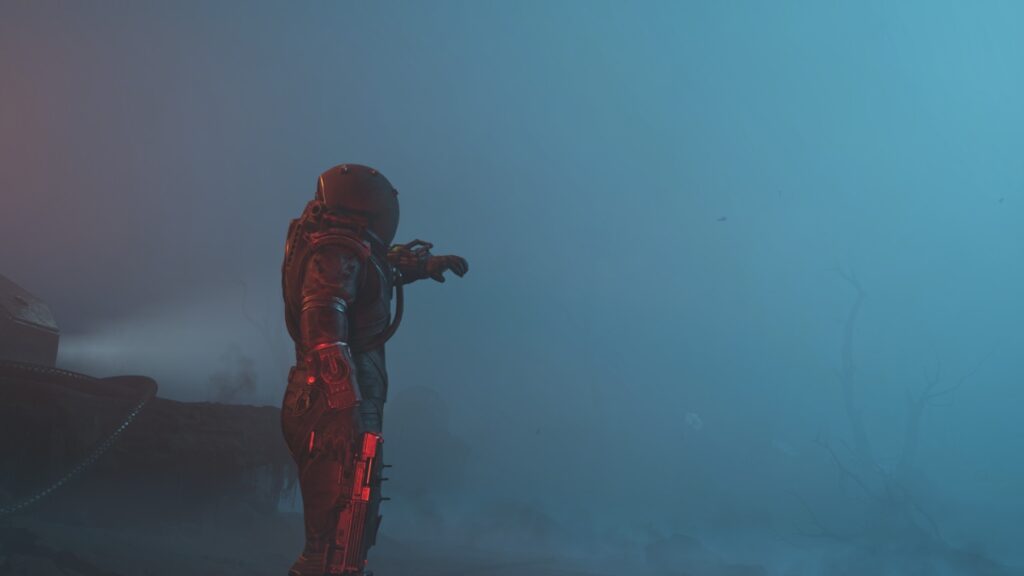
Cronos: The New Dawn isn’t your run-of-the-mill survival horror. You’re not entering a village full of zombies or experiencing an outbreak firsthand. Instead, you’re traveling between two timelines, collecting the Essence of key people who were part of the calamity that affected all humankind, in hopes of understanding and fixing the events that led to everyone’s demise.
Initially, the story didn’t grab me because it felt ambiguous. But as soon as I traveled in time for the first time to “extract” one key individual of this catastrophe, it all started to click, and I began enjoying the whole time-traveling antics that, believe it or not, weren’t that complicated to follow. The usual loop in terms of narrative is traversing to the future timeline full of mutated creatures and anti-gravity shenanigans, finding a place to travel to the past, locating the person, and returning to the future.
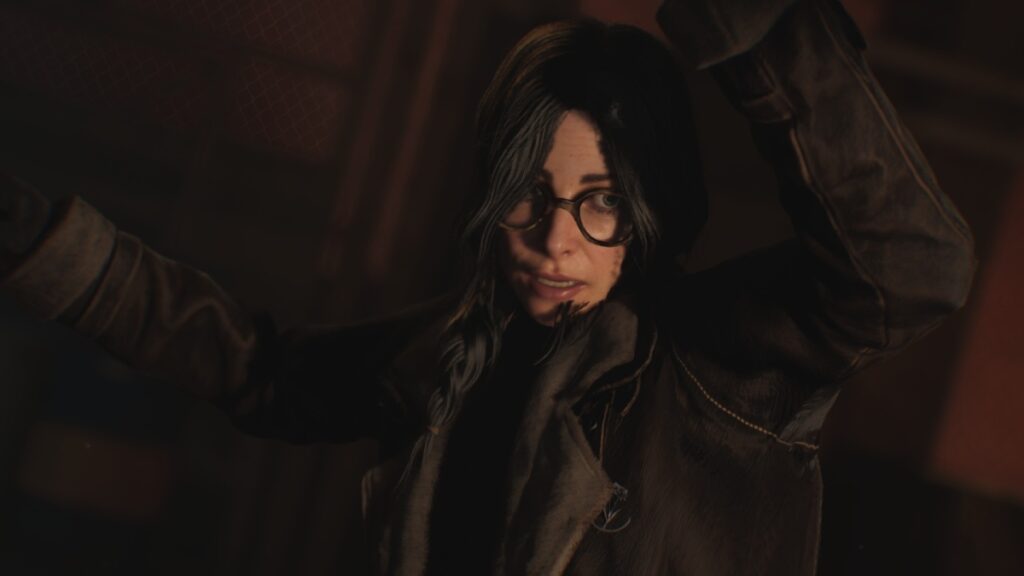
Of course, there are other things in between that enhance the plot, such as the Traveler, who starts questioning what they are doing. As they meet these key figures, they wonder if they are on the right path, set by the Collective, or if there’s something behind the job they initially had to perform. I won’t say more because some shocking revelations really make the narrative stand out, but it is better for you to experience them firsthand.
Overall, the plot of Cronos: The New Dawn turned out to be much better than I expected, particularly because it handles the time-traveling elements well and adds the iconic psychological horror that Bloober Team is known for. On top of that, there are a few key choices you can make at certain points that bring some player agency to the mix, which not only affect narrative elements but also change the gameplay a bit, but more on that later.
A True Survival Experience
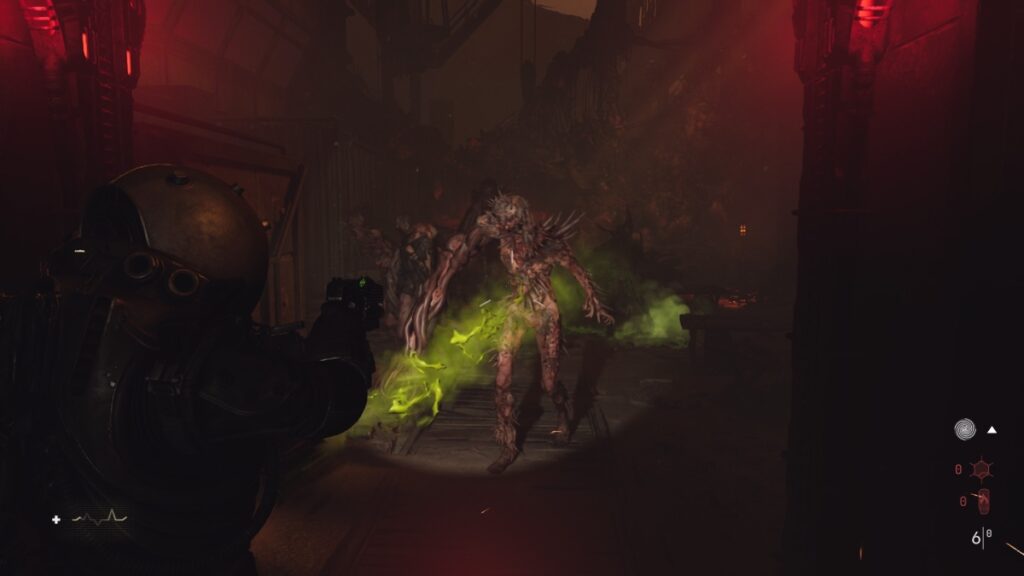
If there’s one thing that always grinds my yellow-painted gears, it’s the fact that modern survival horror games don’t feel like survival-focused experiences. Yes, you have the staples: a small inventory, craftable items, scarce ammo, etc. However, there’s always the pre-boss area that refills everything you have, and the conveniently placed hordes of enemies that always drop loot to fill up your pockets. There’s nothing bad about it if you want a more lenient survival experience, but it takes away the challenge. After many years, Cronos: The New Dawn feels like the first game that finally understands how survival and horror need to work in tandem.
When it comes to the genre’s staples, Cronos: The New Dawn has them all. You start with a small inventory, almost no bullets, and a Stormtrooper aim. Yet, the outstanding part is what the game does with these staples and how it balances them to deliver a proper survival experience.
For instance, resources are scarce, and you’ll rarely get a healing item or a lot of bullets unless you decide to go into some optional rooms. Most of the time, you’ll encounter crafting materials only and a lot of energy, which is the game’s currency you can use to purchase items. This design favors split-second decisions in almost everything you do. Will you use your Chemicals to craft a healing item or save them for bullets? You may be swimming in Scrap Metal, but is it better to craft Shotgun Shells or fuel to incinerate enemies? I prefer this approach over the one mentioned earlier, which puts resources in convenient places to aid you in combat or exploration.
In terms of combat, it is quite similar to other modern survival horror games, albeit with a few differences. You still have that trademark over-the-shoulder camera and a plethora of weapons, including a handgun, shotgun, and machine gun, among others, but there are key things that make Cronos: The New Dawn feel fresh. Take the charged mode of each weapon, for example. Most guns have a charged function that modifies how each weapon works. Your handgun’s charged mode delivers a powerful shot, while your shotgun increases the charge shot’s spread.
It was hard for me at first to get used to this system, especially after spending decades as a trigger-happy survivalist in other games. However, it felt great when I got the hang of this mechanic, as it adds a layer of strategy to every encounter.
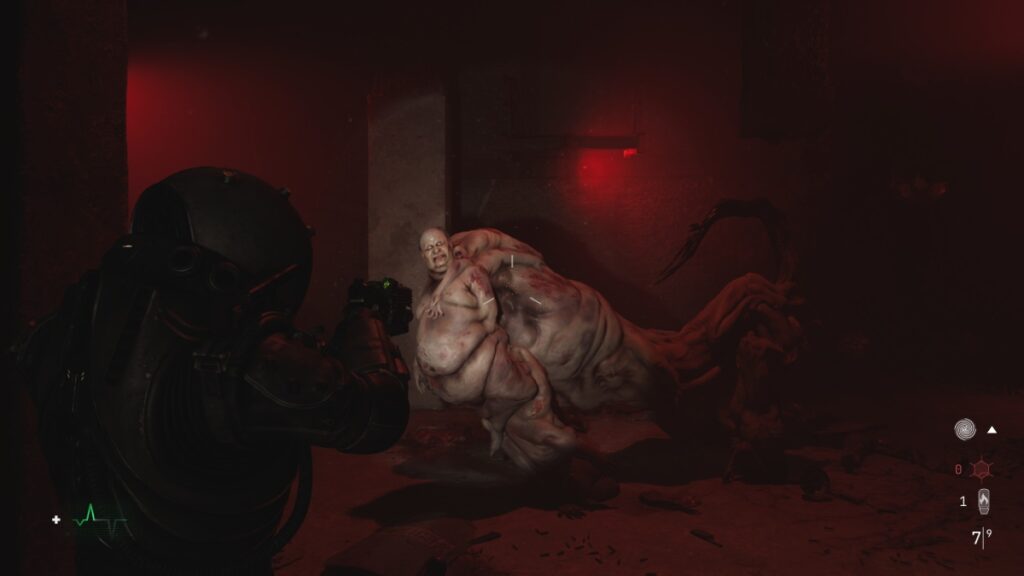
Outside of guns, you have other trinkets that help with combat and exploration. The most important gimmick of Cronos: The New Dawn is the merging mechanic, where enemies absorb bodies to become stronger. To prevent this from happening, you need to burn enemies with flamethrower fuel or with grenade-like items you unlock down the line. This is yet another example of how player agency plays a huge role in the game. Do you save the fuel to stun enemies that are attacking you, or spend it to burn the corpse and prevent them from merging? It is one of the few games that made me feel stressed and engaged in every encounter, albeit in a good way.
The upgrade system is another system that deserves its own spot, as it strikes a balance between being approachable and challenging in terms of making the right choice. To upgrade your suit’s HP or inventory, you need Cores. These objects are scarce, and you’ll often have to weigh in on the decision of upgrading one thing or the other. Guns, on the other hand, require currency, and you’ll also need to evaluate whether to use that currency to stock up on supplies or give your gun that extra punch.
Last but not least, and this is something I mentioned a bit earlier, the Essences you collect from people also have gameplay implications. You can collect Essences by following the main story or finding secret areas with locked Essences. Should you absorb them, they will give you passive bonuses, such as increased currency gain or the ability to deal more damage to burning enemies. However, it comes at a cost, as some of these Essences will manifest in-game, giving your character hallucinations. What makes things better is that you can only have a handful of Essences, and if you want a more powerful one, you might have to get rid of some, including the ones required for the main story. These gameplay choices affect the story and vice versa, which is interesting to see in a survival horror game.
Between Two Timelines
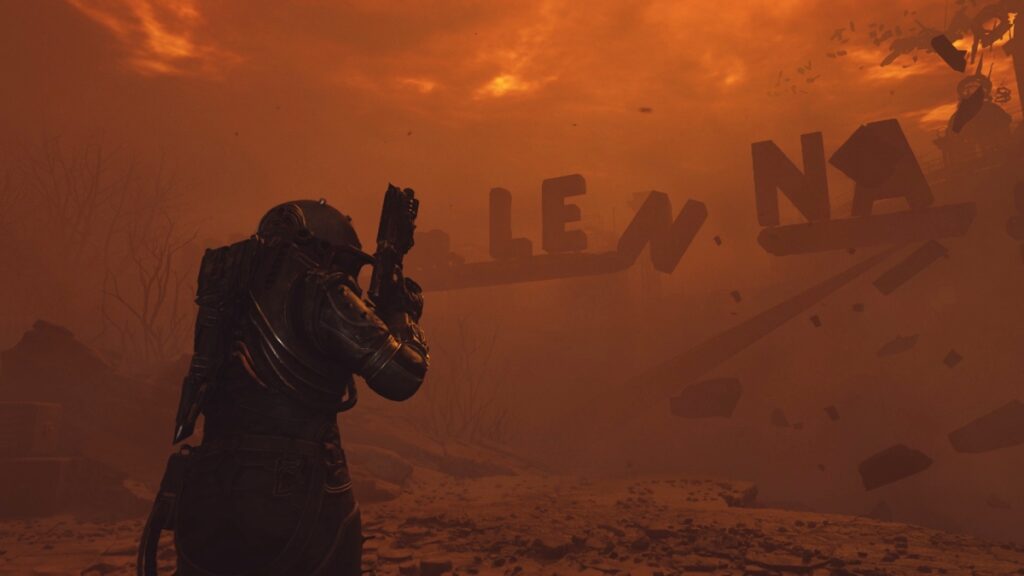
Besides experiencing time-traveling shenanigans in the main story, some time-related mechanics play a huge role when exploring, among other systems. In truth, exploration is superb, but mostly thanks to the superb atmosphere that Bloober Team has crafted for Cronos: The New Dawn.
Out of all the survival horror settings I’ve played, including sci-fi ones, those in a village, the ones that have you go through sewers, and a few more, the one for this title is one of the most unique ones. You’re jumping between a post-apocalyptic future with time and gravity anomalies to a retro-futuristic Poland in the 80s. Both of these settings are terrific, with the former one taking the harrowing cake.
Almost all locations are covered with this gooey and fleshy biomass substance. While the game features many open areas, it shines better in its tight corridors packed with enemies and dim lighting that enhances the horror to unexpected levels. It is hard for me to react to a jumpscare nowadays, but Cronos: The New Dawn had me at the edge of my seat almost every time I played it due to how perfectly crafted the atmosphere and level design are.
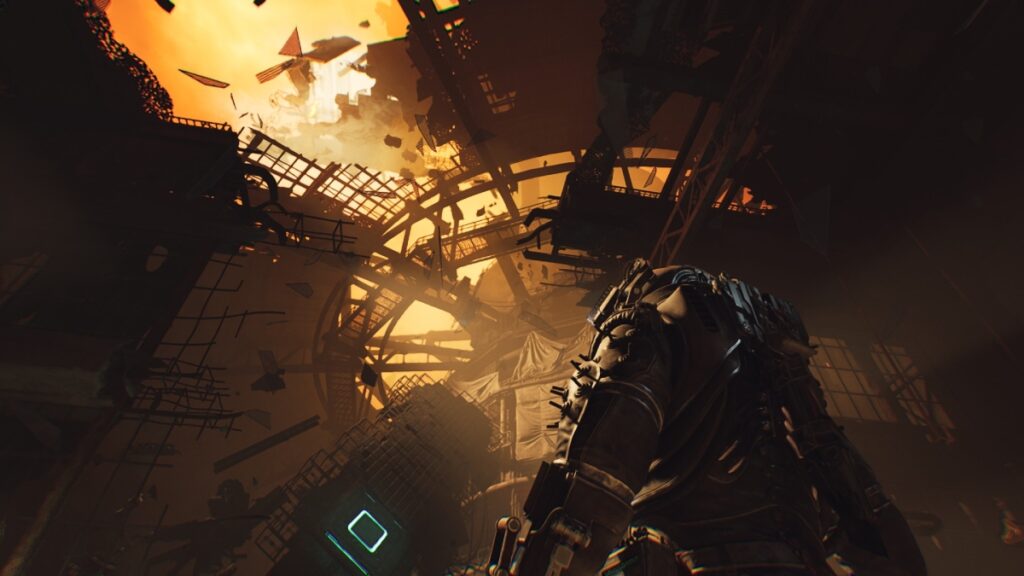
Another thing that helps with the overall setting is the enemies that inhabit it. I always felt that enemies were placed strategically in a way that would increase the challenge of that specific area. If it is a tight spot, you might find foes that cling to the walls and grab you with their fleshy tentacles. Open areas might have more enemies looking for corpses to merge with. Overall, it is an excellent example of how quality over quantity should work in a survival horror experience.
Unfortunately, the one thing that felt underwhelming was the puzzle aspect, which, like it or not, should also be a vital element of the genre. Don’t get me wrong, there are puzzles, but they are mind-numbingly easy. You either have to find codes and keys to access a new area or traverse large areas with your anti-gravity boots. I would’ve loved to see more puzzles throughout my playthrough, but since the atmosphere is so terrifying and immersive, it is one thing I’m capable of overlooking for the most part.
Also, performance isn’t bad, but I did experience a few frame drops, especially at the beginning of the game, and also saw many audio bugs, especially during conversations. Sometimes, the character who was supposed to be screaming sounded too quiet, while the one with a low voice was louder in the scene. Other bugs include subtitles not showing up and a bit of texture pop-in, but then again, they are minimal and do not break the game at all.
Horror at Its Finest
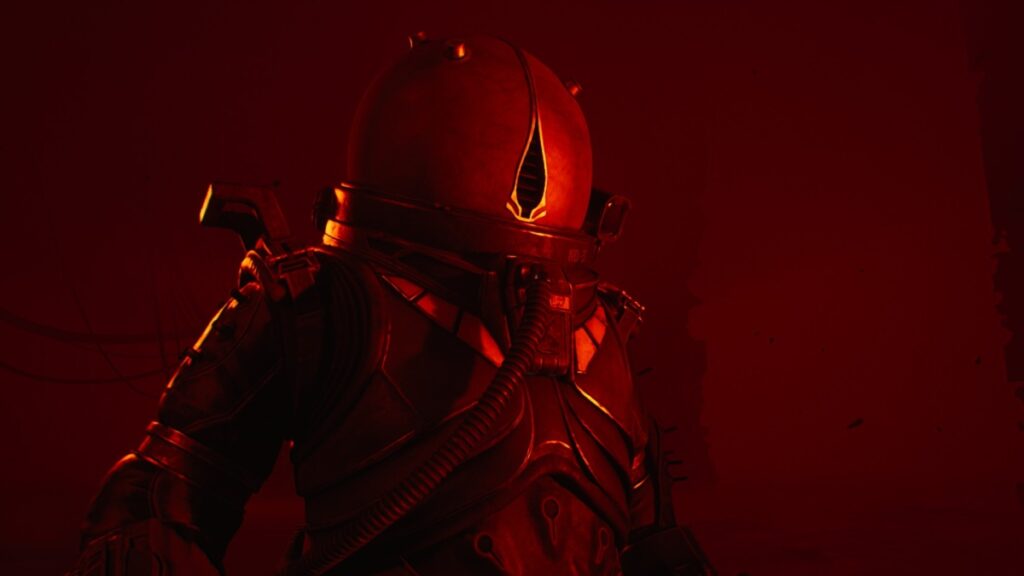
Once again, Bloober Team has shown us that it is at the top of the horror chain. Beyond the scary moments, terrifying places, enemies, and gripping story, it also delivers a refreshing game full of player agency and a lot of emphasis on split-second decisions that make the whole time-hopping journey even more memorable.
After going through 2025 with almost no new survival horror experiences, I’m glad Cronos: The New Dawn delivered such a high-quality one. It is one of the few games that actually makes me feel like I’m struggling to survive against all odds. Its approach to combat, storytelling, and survival is refreshing and one that immerses you into one of the most harrowing and claustrophobic atmospheres of recent memory.
Review copy provided by the Publisher.
Cronos: The New Dawn (PC Reviewed)
Cronos: The New Dawn is one of the most refreshing survival horror experiences of recent memory, thanks to its emphasis on player choices and split-second decisions, which shine even further due to its harrowing setting and gripping narrative.
Pros
- A terrifying and immersive atmosphere
- An engaging narrative
- Challenging survival mechanics
Cons
- A few audio bugs
- Some graphical issues

